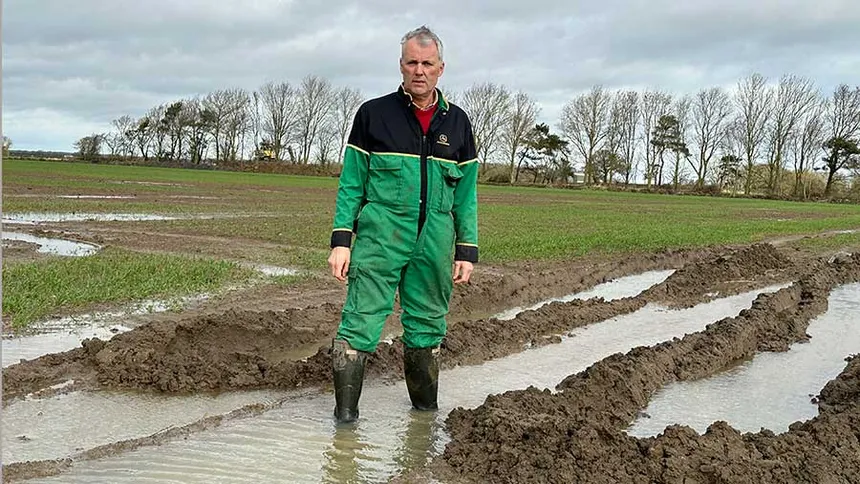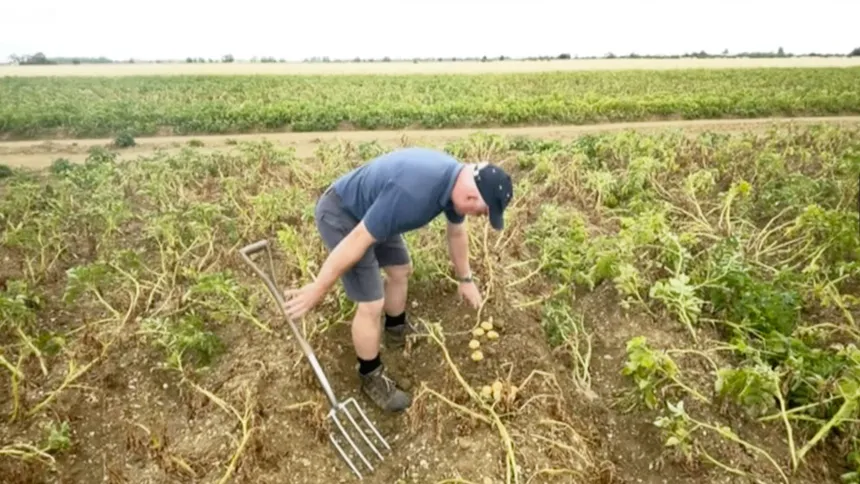The UK’s crop harvests are poised to take a significant hit this year due to the relentless rain that has beset the country since last fall. Farmers are bracing for a reduction of nearly a fifth in their yields of crucial crops like wheat, barley, oats, and oilseed rape, which could lead to higher prices for everyday staples like bread, beer, and biscuits.
According to analysis by the Energy and Climate Intelligence Unit (ECIU), the amount of these crops expected to be harvested this year could drop by as much as 4 million tonnes, a decline of 17.5% compared to last year’s yields. This catastrophic drop-off is attributed to the unprecedented wet weather that has plagued the country, resulting in flooded fields, damaged crops, and farmers being unable to establish new crops.
The ECIU’s Tom Lancaster, a land analyst, noted, “Soils are so waterlogged they cannot be planted, and tractors are unable to apply fertilizers. This will not only have a financial impact on farmers but also increase imports to fill the supply gap, leading to higher costs for consumers.”
The association between the poor harvest and higher prices is evident, with forecasters warning that prices for bread, beer, and biscuits could rise if the domestic supply chain is unable to compensate for the shortfall. The government’s green farming schemes, aimed at supporting farmers in adapting to changing climate conditions, have been hailed as crucial in helping farmers invest in soil health to better withstand wet winters.
The analysis also suggests that spring barley and spring oats will exhibit higher production rates compared to last year, with farmers allocating more land to these crops due to the difficulties in planting and growing winter crops. However, this development may not be enough to offset the overall decline in harvest yields.

A recent call by the National Farmers’ Union (NFU) for increased support to protect farmers from flooding has highlighted the pressing need for measures to mitigate the impact of wet weather on the agricultural sector. The union’s vice-president, Rachel Hallos, remarked, “Consumers may well see the effects through the year as produce simply doesn’t leave the farm gate.”
Arable farmer Colin Chappell from Lincolnshire and member of the Nature Friendly Farming Network (NFFN) lamented the devastating impact of the persistent rain on the agricultural sector, stating, “Some of them are so bad I don’t think they’ll get drilled this year. It’s now dry enough to plant some fields, but some of them are virtually useless.”
The dire consequences of the poor harvest have already been acknowledged by industry leaders, with the head of Associated British Foods warning of potentially higher prices if the increase in domestic costs is not offset by larger harvests abroad.

